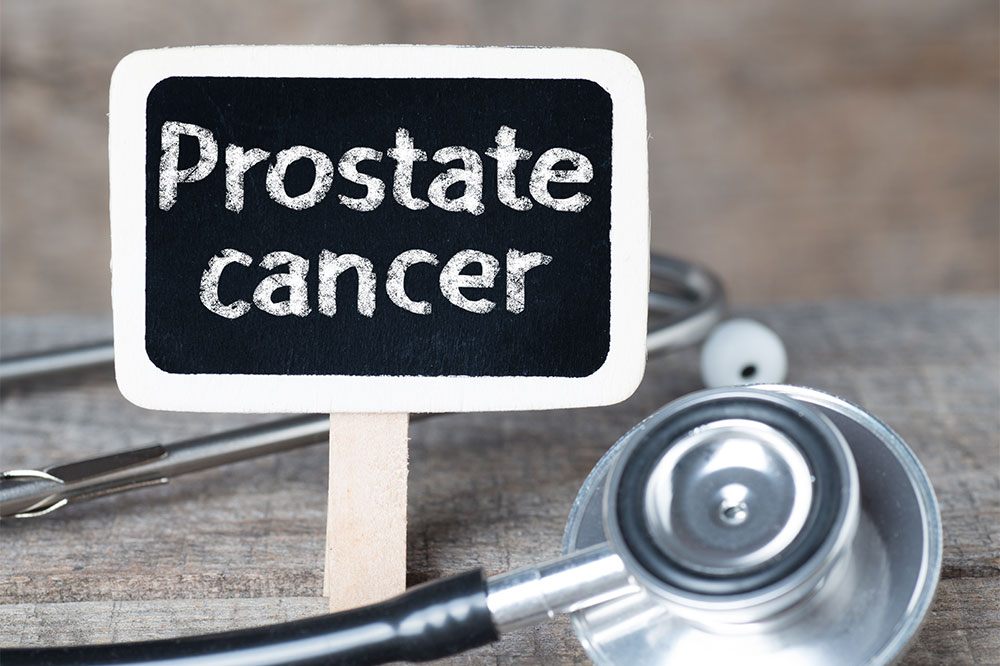Causes, Symptoms, and Ways to Manage Prostate Cancer

The prostate gland is an indispensable part of the male reproductive system that is responsible for producing seminal fluid. Prostate cancer develops when abnormal, cancerous cells develop in the prostate gland. These cells may eventually spread to other organs, including the liver and lymph nodes. While prostate cancer is common among men, early diagnosis and treatment can help overcome the condition. This article elucidates the prostate cancer causes and symptoms and ways to mitigate its risk:
Causes and risk factors
Genetic predisposition
Mutations to specific genes like BRCA1, BRCA2, and HOXB13 can increase one’s risk of developing prostate cancer. These genetic mutations are also responsible for the onset of breast cancer. Therefore, research has demonstrated that individuals with a family history of breast cancer may also be more vulnerable to this condition than others. Finally, individuals with close blood relatives grappling with prostate cancer are at a higher risk.
Age
One’s risk of prostate cancer increases with age and is most common among individuals over the age of 50. Further, individuals who are 65 years or older account for 60% of prostate cancer cases.
Excessive fat consumption
Several experts agree that excessive fat intake is one of the most crucial risk factors for prostate cancer. Meal plans consistently high in fat sources like red meat and other rich meat sources can increase one’s probability of developing this condition. Fats lead to excessive production of testosterone, which can accelerate prostate cancer development and growth. As a result, prostate cancer is more common in countries where meat and dairy are consumed in large quantities.
Exposure to agent orange
Exposure to Agent Orange, a detrimental chemical herbicide and defoliant used during the Vietnam War, is believed to be a risk factor for prostate cancer. War veterans exposed to this chemical during their military services were found to be affected by this condition.
Symptoms of prostate cancer
Individuals with prostate cancer may not experience any symptoms during its early stages. However, with time, one may begin to experience symptoms as follows:
Interruptions in urine flow
Prostate cancer may cause interruptions to urine flow, often slowing it down or leading to the inability to control its flow. These interruptions are caused by enlargement of the prostate gland, which blocks the passage of urine.
Incomplete emptying of the bladder
Patients with prostate cancer may face challenges emptying their bladder due to prostate enlargement. They may feel that their bladder is not entirely empty even after urinating.
Bone pain
Patients may experience dull and persistent bone pain at the advanced stages of prostate cancer. This symptom indicates that the cancer has spread to the bones. The bone pain may prevent patients from sleeping comfortably.
Erectile dysfunction
Although erectile dysfunction is not a direct symptom of prostate cancer, its treatment can lead to the development of erectile dysfunction, as it can affect the nerves responsible for causing erections.
Ways to reduce prostate cancer risk
Limit fat intake
As mentioned earlier, excessive fat consumption can increase one’s risk of developing prostate cancer. Thus, limiting fat intake, especially from animal sources, is an effective way to mitigate prostate cancer risk. It helps to replace fat sources like red meat with lean meats like chicken and turkey breast, pork, healthy vegetable oils, and clarified butter.
Have foods rich in lycopene
Some studies have identified an association between lycopene-rich foods and prostate cancer prevention. Leafy greens, including kale, spinach, Brussels sprouts, and Swiss chard, are rich in lycopene and can lower prostate cancer risk. Lycopene is also found in cooked tomatoes, apricots, pink guavas, watermelons, and grapefruits.
Incorporate foods high in sulforaphane
According to recent studies, sulforaphane can play a role in prostate cancer prevention. Thus, it is advisable to have foods high in sulforaphane, including cruciferous vegetables like cabbage, broccoli, and bok choy. One should heat or freeze cruciferous vegetables before consumption for better sulforaphane absorption.
Increase vitamin D intake and exposure to sunlight
Vitamin D is proven to help with the prevention of prostate cancer as well as other cancers. Exposure to sunlight can increase vitamin D in the body. Moreover, it is recommended to have foods rich in vitamin D, such as wild salmon and other fatty fish, cod liver oil, dried shitake mushrooms, and egg yolks.
Increase sexual activity
Several studies have found that an increased frequency of ejaculation is associated with lowered risk of prostate cancer. A possible explanation for this finding is that ejaculation may help clear cancer-causing substances from the prostate.
Stay physically active
According to a recent study, physically active individuals have increased chances of prostate cancer survival than those leading sedentary lifestyles. In another study, individuals who performed exercises equivalent to one to three hours of walking every day had an 86% lower risk of developing prostate cancer than others. Thus, it is advisable to be physically active, engaging in exercises like walking, jogging, cycling, swimming, aerobics, and strength training.
Prostate cancer may be classified into four distinct stages:
Early stages
Stage I and II are classified as early stages, wherein cancer has not begun spreading and is limited to the prostate.
Locally advanced stage
Here, the cancer has progressed to stage III and has begun spreading to nearby tissues.
Advanced stage
In stage IV, the cancer has spread to organs like the liver and lymph nodes.
Detecting cancer at the early stages can overcome the condition. Nevertheless, diagnosis at the advanced stages can also limit its spread to other organs and slow its progression. At the advanced stages, doctors typically recommend treatments such as radical prostatectomy or hormone therapy, also called androgen ablation or androgen deprivation therapy. Alongside a systematic treatment course, a healthy and active lifestyle, a well-chalked-out meal plan with all essential nutrients, and abstinence from fast food can help heal prostate cancer.







